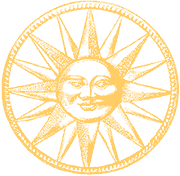Olive Oil culture
- Brindisi Airport, Brindisi, Italy
- Active & Adventure

| Contact provider for price | 7 Days | Year-round |
| Comfort accommodations | Exertion level: 3 | |
| Operator: Mediterranean Life | 17 people max | |
It has been produced virtually since the beginning of recorded history. The trace of its production can be still read on the Apulian territory and amazing as it may seem, the pressing system is the same as in the 5th-4th century B. C.
The so called hypogean oil-mills date back to the time of the first cave dwellers in the Neolithic period.
In the eleventh century, their caves were inhabited by Eastern monks who had escaped from religious persecution. Later, they were used by the peasants and, finally, they were enclosed in the large properties belonging to the masserie (old farmhouses), where they can still be admired.
Apart from the these historical aspects, the course will concentrate on distinguishing between the various types of olive oil produced in modern times and how they are best used, with the guidance of olive oil experts ("elaiogeusti").
Loading map, please wait...
Locations visited/nearby
Italy, Europe
Special information
- This is a custom departure, meaning this trip is offered on dates that you arrange privately with the provider. Additionally, you need to form your own private group for this trip. The itinerary and price here is just a sample. Contact the provider for detailed pricing, minimum group size, and scheduling information. For most providers, the larger the group you are traveling with, the lower the per-person cost will be.
Itinerary
1st day Arrival and transfer to the hotel2nd day Squinzano - Melendugno - Acaia - Surbo - Gallipoli
3rd day Monopoli - Ostuni
4th day Massafra - Taranto - Grottaglie
5th day Andria - Canosa - Castel del Monte
6th day Fasano - Alberobello - Locorotondo
7th day Transfer to Bari or Brindisi airport
More information from Mediterranean Life:
- View trip on provider's website
www.mediterraneanlife.com/OliveOil_Culture.htm… - Company profile, experience, and history
- View all of their trips
- Email this trip page to a friend
-



Comments from Facebook